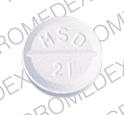Cogentin Interactions
There are 347 drugs known to interact with Cogentin (benztropine), along with 12 disease interactions, and 2 alcohol/food interactions. Of the total drug interactions, 8 are major, 320 are moderate, and 19 are minor.
- View all 347 medications that may interact with Cogentin
- View Cogentin alcohol/food interactions (2)
- View Cogentin disease interactions (12)
Most frequently checked interactions
View interaction reports for Cogentin (benztropine) and the medicines listed below.
- Abilify (aripiprazole)
- Ativan (lorazepam)
- Benadryl (diphenhydramine)
- clonazepam
- Cymbalta (duloxetine)
- Depakote (divalproex sodium)
- gabapentin
- Geodon (ziprasidone)
- Haldol (haloperidol)
- hydroxyzine
- Klonopin (clonazepam)
- Lamictal (lamotrigine)
- Latuda (lurasidone)
- Lexapro (escitalopram)
- lisinopril
- lithium
- metformin
- omeprazole
- propranolol
- Prozac (fluoxetine)
- Risperdal (risperidone)
- Seroquel (quetiapine)
- Synthroid (levothyroxine)
- Topamax (topiramate)
- trazodone
- Vistaril (hydroxyzine)
- Vitamin D3 (cholecalciferol)
- Xanax (alprazolam)
- Zoloft (sertraline)
- Zyprexa (olanzapine)
Cogentin alcohol/food interactions
There are 2 alcohol/food interactions with Cogentin (benztropine).
Cogentin disease interactions
There are 12 disease interactions with Cogentin (benztropine) which include:
- infectious diarrhea
- angle-closure glaucoma.
- psychoses
- anhydrosis
- BPH
- CNS disorders
- dysuria
- GI obstruction
- hypertension
- tachycardia
- tardive dyskinesia
- fever
More about Cogentin (benztropine)
- Cogentin consumer information
- Compare alternatives
- Reviews (10)
- Drug images
- Side effects
- Dosage information
- During pregnancy
- Drug class: anticholinergic antiparkinson agents
- Breastfeeding
Related treatment guides
Drug Interaction Classification
| Highly clinically significant. Avoid combinations; the risk of the interaction outweighs the benefit. | |
| Moderately clinically significant. Usually avoid combinations; use it only under special circumstances. | |
| Minimally clinically significant. Minimize risk; assess risk and consider an alternative drug, take steps to circumvent the interaction risk and/or institute a monitoring plan. | |
| No interaction information available. |
See also:
Further information
Always consult your healthcare provider to ensure the information displayed on this page applies to your personal circumstances.


